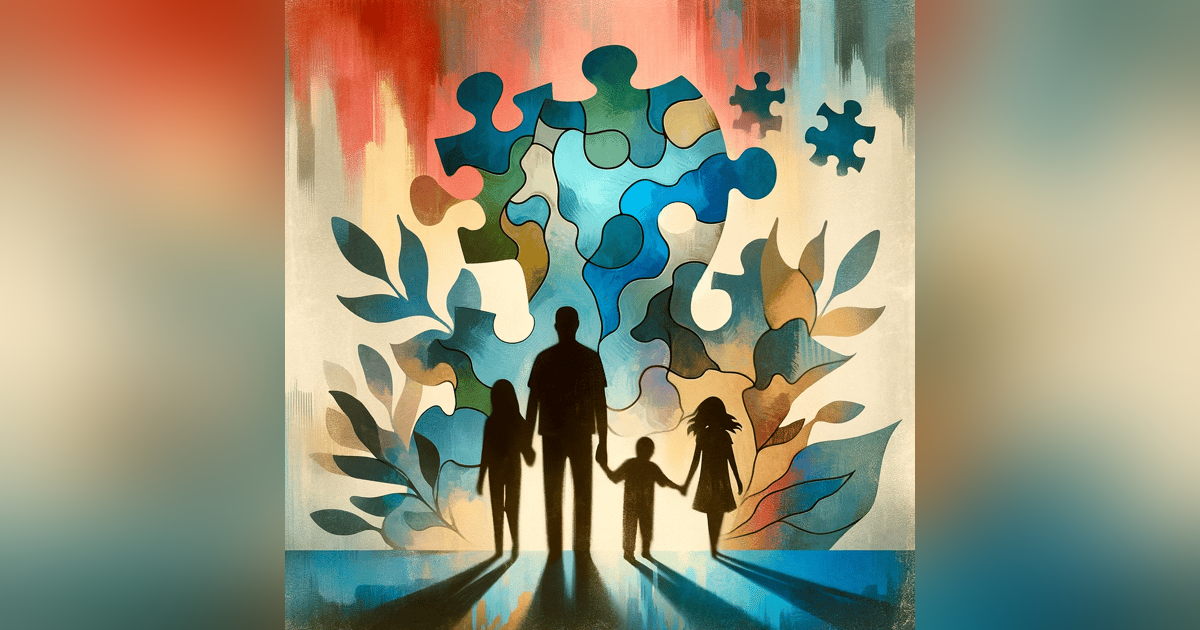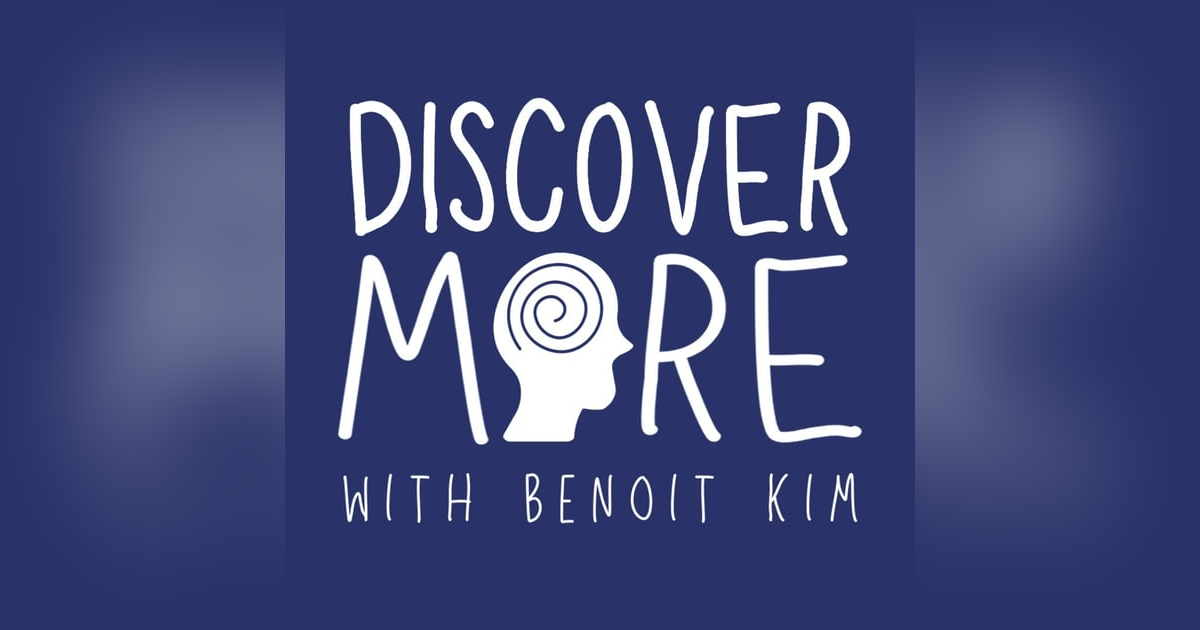#148. The Psychological Trauma of Adoption - Pam Uzzell


What are the psychological implications of adoption trauma? What is the reality behind adoptees and their parents? How prevalent is adoption in America?
According to the University of Oregon, about 5 million Americans are adoptees, which is more tha...
What are the psychological implications of adoption trauma? What is the reality behind adoptees and their parents? How prevalent is adoption in America?
According to the University of Oregon, about 5 million Americans are adoptees, which is more than 7% of the population, and more than 50,000 children are adopted through foster care every year.
Pam Uzzell is a documentary filmmaker, podcaster, and film & art college course instructor. Pam is also an adoptee from 50 years ago who lived through the little-known psychological implications of adoption trauma.
Pam has bachelor’s degrees in French literature and modern culture from Brown University. As a producer, she has post-production credits in over 20 featured films, including Terminator 2, Godfather III, and Bram Stoker’s Dracula.
Expect to learn about the trauma of adoption, trauma and foster care, adoption trauma, true vulnerability, why all emotions matter, the importance of negative emotions, and much more about psychology and science.
Strap in for one of our best psychology podcast episodes.
Let's get this started.
*
Rate The Podcast: HERE
Show Notes:
Pam’s Website: HERE
Pam’s Instagram: HERE
Pam’s Podcast: HERE
Pam’s LinkedIn: HERE
Pam’s IMDb: HERE
*
Subscribe to YouTube: Discover More
Discover More Website: HERE
Come say hi on Instagram: HERE
*
Discover More is a top social sciences podcast for independent thinkers with mental health as a through-line. Looking for deep thinking? Let’s get this started
*
Listen to all full-length episodes on audio:
Apple Podcasts: https://podcasts.apple.com/us/podcast/discover-more/id1478666639
Spotify: https://open.spotify.com/show/4OQZ0SEZ30BNFX5m4hCZEl
*
Thank you for Discovering More with us!
Pamela Mozell on Adoptees and Art
About 5 million Americans are adoptees, which is more than 7% of the population. Pam Mozell is a documentary filmmaker, podcaster and film and art college course instructor. She lived through the little known psychological implications of adoption trauma. Pam's podcast, Art heals all wounds, shares a powerful and transformative healing property of art.
Pamela On The Adoption Experience
Benoit: How has arts in your own personal life healed your wounds? Pam: There is a certain adoption profile, which is probably inescapable. Benoit: I have spent a lot of time looking for my tribe. I find more empowerment in choosing the tribe that you are belonged to.
On Adopting as a Child
"I never didn't know that I was adopted. It was in our baby books. It's more something that's happening on an unconscious level about not feeling like you fit in, " she says. One of the best ways to mitigate the pain of the adoptees by their adopted parents is to be transparent about the adoption process.
I Finally Made Contact With My Biological Parents
In his 20s, when he was making the transition out of college, fantasies about his biological family really kick in. After a dna test for ancestry. com, he was contacted almost immediately by cousins within the biological family. He has since been in touch with his biological mother.
On Re reconnecting with my biological mother
My adoptive father and my adoptive mother died in 2016. There's so much to process about my relationships with them. I wish I could have just set aside the whole mother daughter thing and taken her as a friend. I was seeing if the years of documentary experience as a filmmaker gave you some sort of an ability to soothe in the blow.
Benoit on Being Vulnerable on Podcast
Benoit: If you have some sort of trauma in your background and you do gravitate to storytelling, that can be one of the biggest traps. He sees a lot of the intersections and through line between stand up comedy, improv comedy and podcasting. Benoit has mixed feelings about mental health discussions in 2023, especially on podcast.
The Search for Story's Magic Moments
What we're looking for when we engage with story is connection. If you can create those magic moments where your audience is going to feel it in their body, you have gold. The rest of it, there can be flaws all over the place.
Penn on The Joe From You Drama
Penn Jillette: There is something to be said to getting to know people for seven seasons as opposed to 2 hours. He says we are moving away from the arc of hero's journey, yet it's complex, it's multidimensional. Jilslette: I can't wait till part two drops in, two weeks or three weeks from today.
In the Elevator With Documentaries
As a cinematic director, filmmaker, producer, director, do you feel like you're often giving or even leaving a piece of you into the films that you make? You really have to make sure that your story aligns with the story of the subjects in your film.
What is Documentary and Proposals?
I think the line between documentary and propaganda is blurring more so than ever. Conspiracy is a film that talks about veganism, vegetarianism, give on meat. There's a fundamental difference between giving a piece of yourself in the storytelling versus having your bias shine through.
Sundance Film Festival: Documentary
Documentary has always had its place in creating demand and selling tickets. The person creating it is always, always influencing the content. Is the story that I'm telling ethical and accurate to the best of my ability? Support for arts in general and documentary film in particular are shrinking.
Grief and the Rituals of Art
Is grief a way to share your grief with other people? And then the other one is community. How do we protect these rituals around grief, or strengthen them?
Grieving in an Art
The progression and the universality makes it an r form and tie that into grieving process or the rituals we're talking about. Just bearing witness to the progression makes it ritualistic or makes it healing. Art imitates life, and life imitates art.
What Are the Qualities of a Beloved Relationship?
The first thing is curiosity. The second thing is to really develop empathy. And you have to start with yourself. I don't think it's possible for people who don't love themselves to be loved. What is the story that actually is the one that's going to serve you right now?
Wonders of the Neighborhood Red Carpet
Benoit: Where can people connect with you further if they feel inspired to discover more about who you are and what you represent? Benoit: The first one is the website for my podcast. Another film that I really love is called welcome to the neighborhood. I really enjoyed learning more about your stories.





